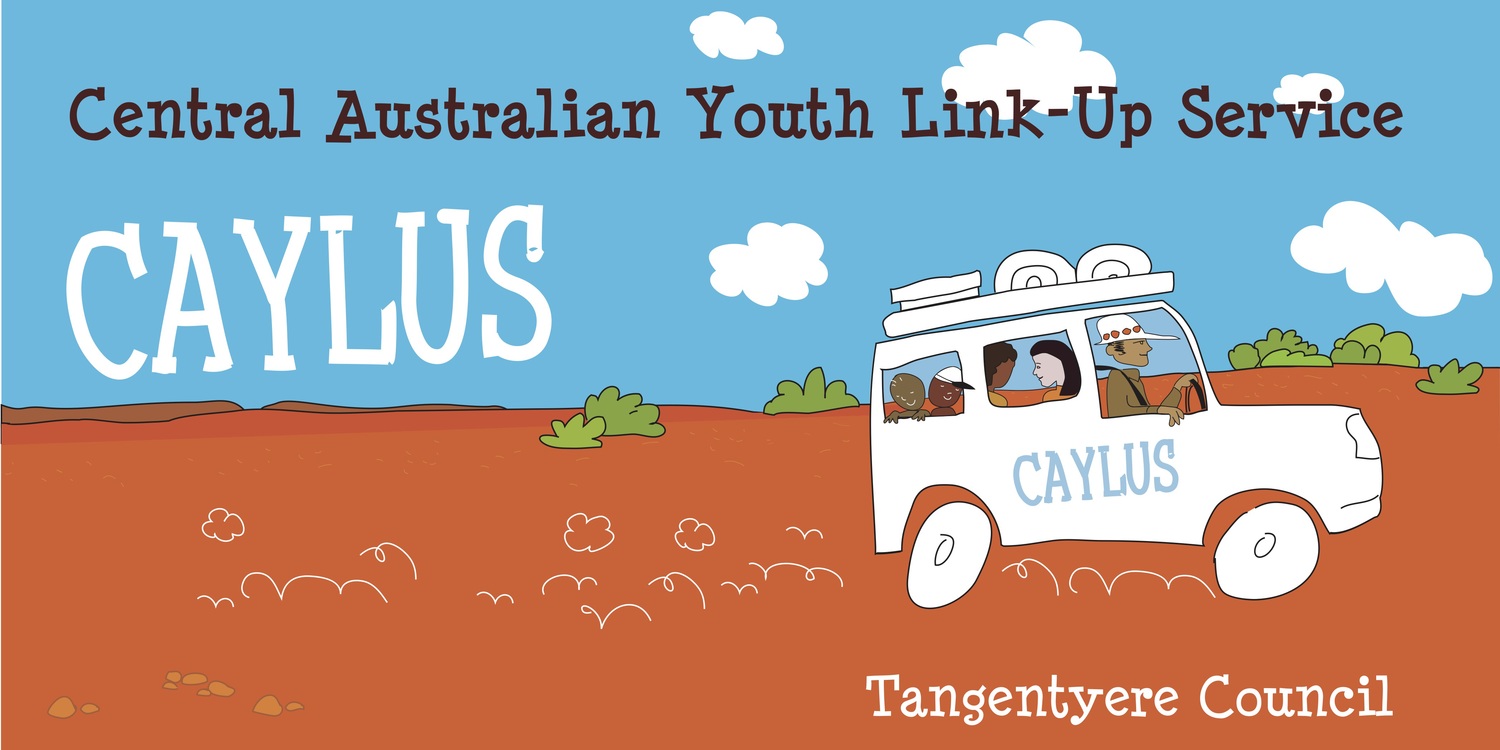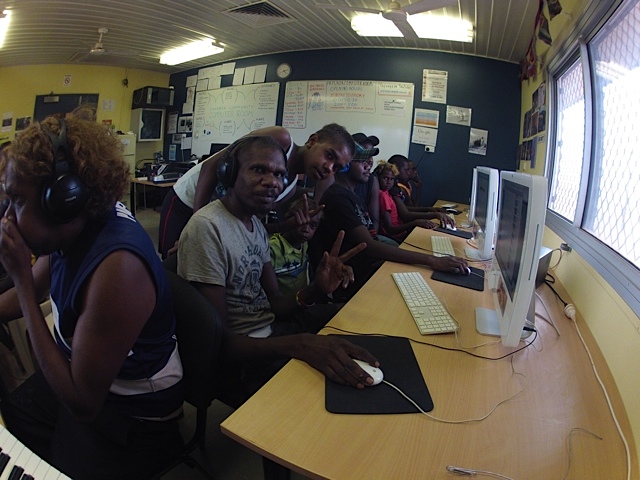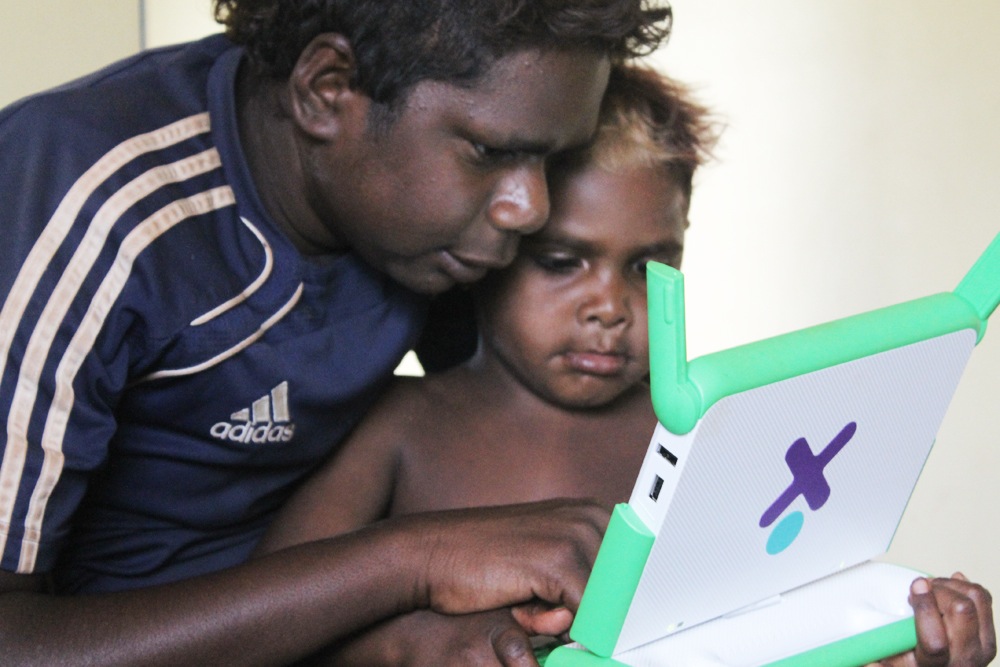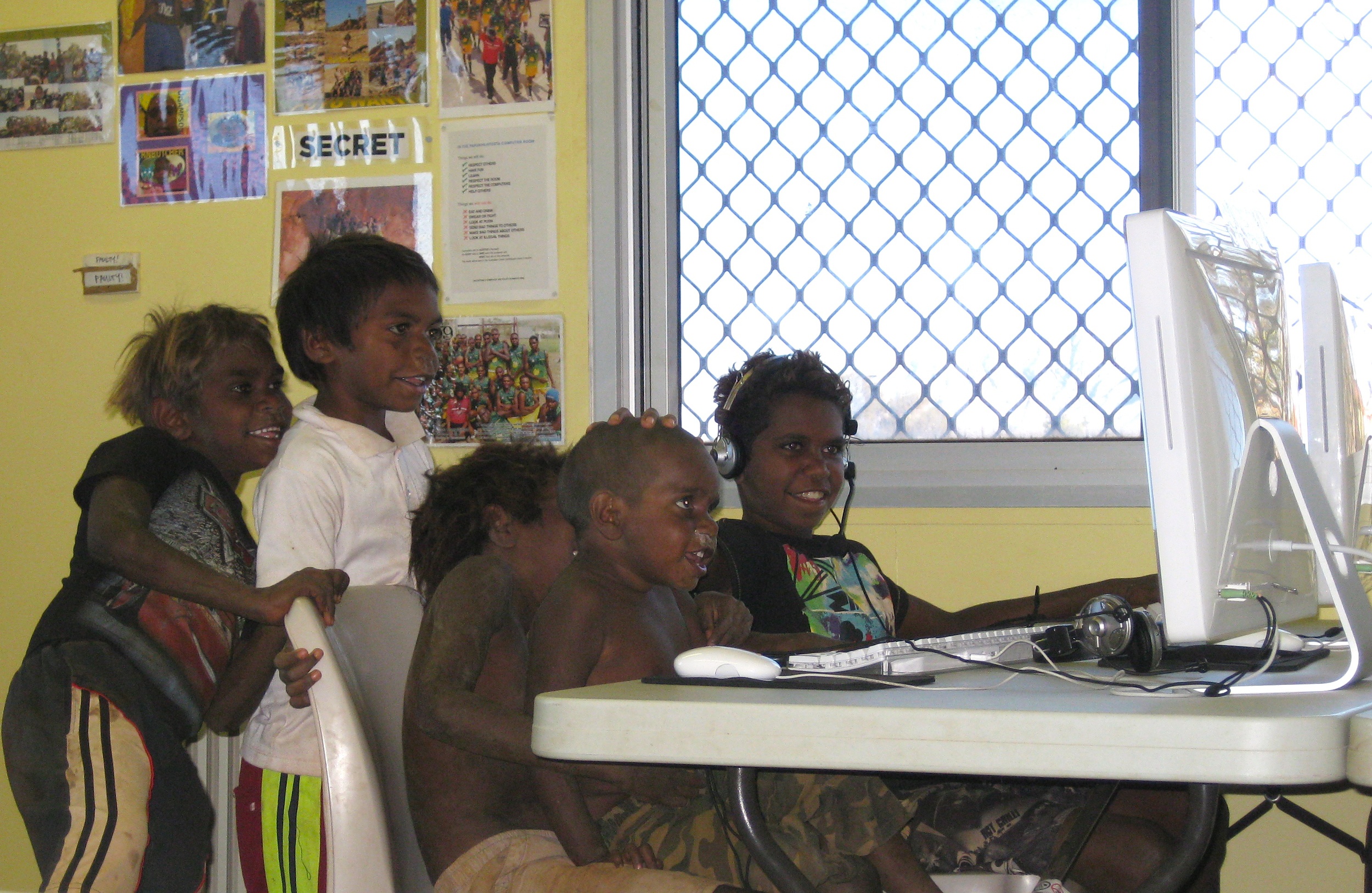
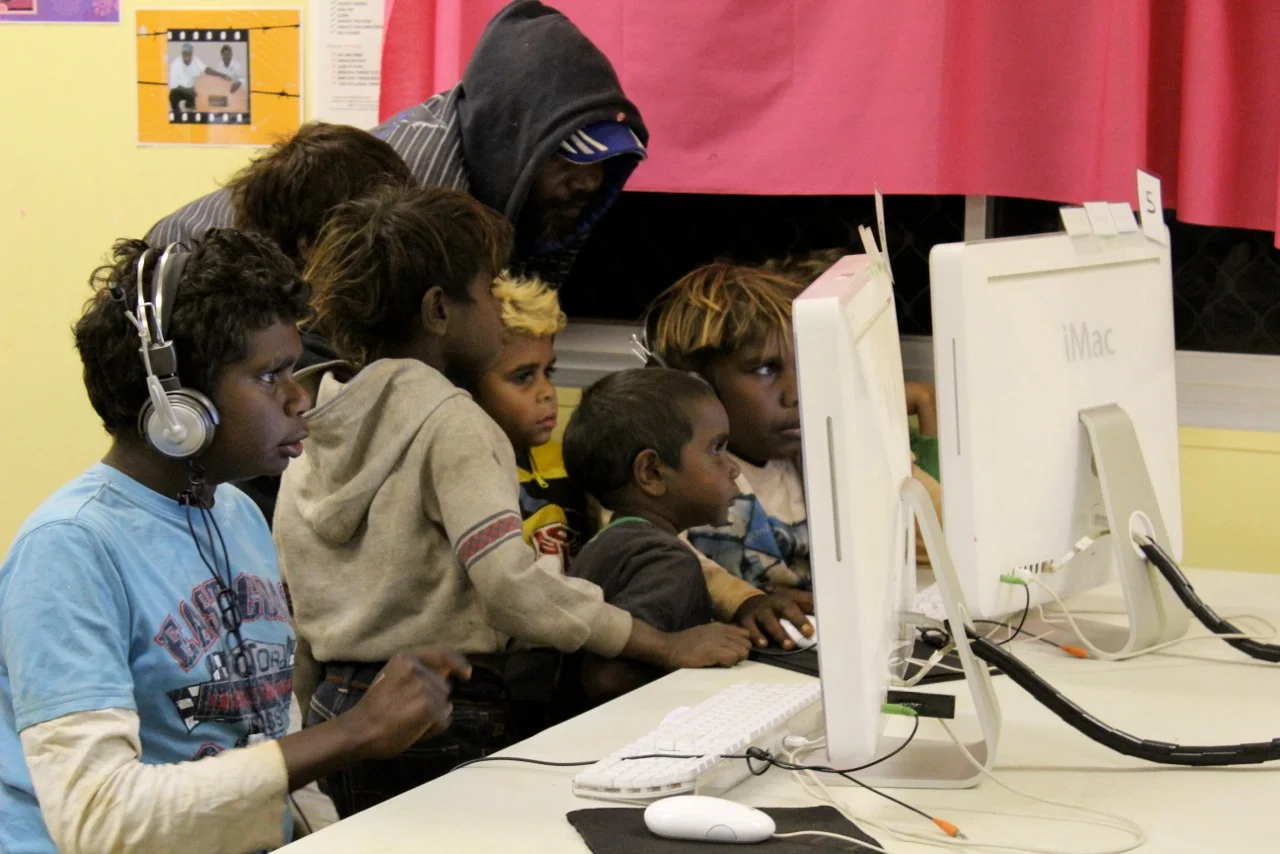

Computer Project
Supporting the development of Computer rooms is a key way that CAYLUS has been working to improve the range of opportunities and resources available to young people and families in Central Australia.
Computer Project
Supporting the development of Computer rooms is a key way that CAYLUS has been working to improve the range of opportunities and resources available to young people and families in Central Australia.
We work with a range of partner agencies to establish rooms in remote Aboriginal Communities, and in Alice Springs where computers are available for public use along with some supervision and assistance. CAYLUS also facilitate wifi hotspots in the region.
These facilities have proven very popular with people in a range of age groups, and are particularly valuable for essential services: internet banking, paying bills, managing Centrelink and other life admin. Internet access is vital for communication with kids away at boarding school and family in other communities, many families have long relied on public phone boxes and limited access to landlines. Playing games, social media, shopping, making media, uploading content… the uptake of internet and digital devices is valued by families in remote communities and is absolutely essential.
As more and more government and other services are being shifted to online access only, connectivity and access to computers is becoming ever more essential to those living in remote Aboriginal communities.
This film ‘Remote Satellite Connectivity’ was made in Ikuntji, to show at the Broadband for the Bush conference in Darwin in 2015. It demonstrates poor internet speed and how this impacts life in a remote community.
Local Control of Public Wi-fi
This presentation was made for the 2017 Broadband for the Bush conference in Fremantle. There are some very interesting stats that explode a few myths about remote community life and some stories about how mobile phones are used by remote community people. The stats and the stories demonstrate very clearly that it is a big call to expect remote Aboriginal community people to pay for connectivity that is freely accessible in urban areas of Australia.
Download: B4B presentation (5.3MB)
For the most up-to-date information about our community computer room and wifi hotspot projects, see the CAYLUS and DotCom Mob Facebook pages.
CAYLUS has supported the development of computer rooms and wifi hotspots in 28 remote communities.
Access to computers enables people to participate in self-directed learning, and boosts literacy, numeracy and computer skills.
Computer rooms have been successfully used as an incentive for young people to go to school.
Monday’s students receive vouchers, a pass to go to the local computer room
This pictorial report explains why, where and how CAYLUS and our partner organisations support and facilitate wifi connectivity and computer rooms across our region.
This CAYLUS film ‘Slipping Through the Net’, explains the difficulties faced by remote Aboriginal community people in accessing essential services. Access to government and other services is most often online only, access to computers and reliable internet is limited and expensive, and if English is a third or fourth spoken language and English literacy is poor, these barriers can become insurmountable. The film also talks about the huge amount of unacknowledged and unpaid work that is done by people in remote Aboriginal communities.
Remote communities in our region want and need internet services, but they also want and need the capacity to manage them, in order to reduce the risks of trolling, jealousing and bullying on line. Limiting hours of operation, daily download limits, content filtering and the ability to block particular sites on a temporary or permanent basis are all strategies being used at the request of local people in remote communities in Central Australia. This video features conversations with people in Harts Range around these issues. CAYLUS has also developed a set of resources aimed at promoting cyber safe approaches in remote communities that can be found here.

Papunya Computer Room
The Papunya Computer Room ran between 2009 and 2014/15, it was established as a response to a Senate Inquiry into Petrol Sniffing.
Papunya Computer Room
The Papunya Computer Room ran between 2009 and 2014/15, it was established as a response to a Senate Inquiry into Petrol Sniffing.
The Inquiry identified a cohort of high-risk young Papunya people (14-25) who had substantially missed out on education due to the substance misuse in the community that had been occurring for more than a decade prior to the regional roll-out of low aromatic Opal fuel. Opal fuel reduced sniffing rates by 94% in remote regions, but could not, by itself, reduce the risks to young people without the complementary measures of effective in-community youth programs and facilities.
This documentary looks at some of the good things that have been happening in Papunya NT as a part of efforts to deal with youth substance misuse.
One of the CAYLUS strategies for addressing substance misuse is to work with local communities and other organisations to provide engaging alternative activities for the most at-risk groups of young people in remote communities. Under this strategy Papunya Computer Room was set up as a free community access IT centre and content-filtered wifi internet hotspot, and was used by a broad variety of age- groups in Papunya and community visitors. The Papunya Computer Room was staffed by volunteers, some of whom still regularly return to the community to work on other projects.
When it was run by CAYLUS there were two computer rooms in the facility, one designated for women and girls only. It was open 5-6 days per week (depending on volunteer and staff time and availability), morning and afternoon. We did not charge users as we did not want to put any obstacles in the path of people having access to what has become an essential service, plus we did not want the volunteers who ran the room to have to deal with the complexity of the paying service. Due to the lack of availability of a suitable space in the range of other factors that computer room stopped operating in 2014/15. We continue to look for ways to get it going again. We have retained this information here is a historical record of a successful program.
